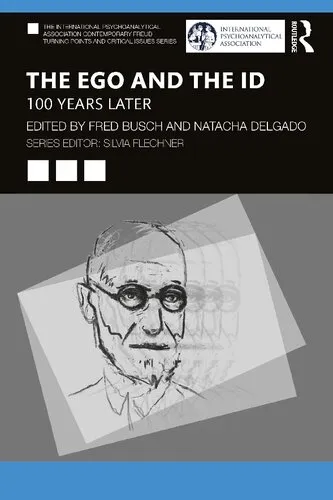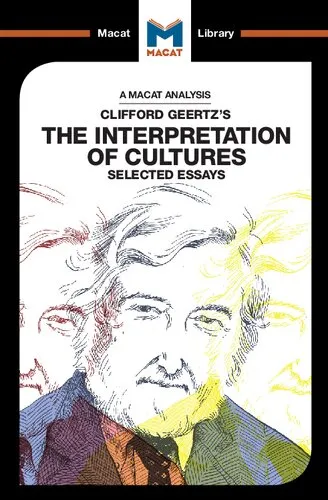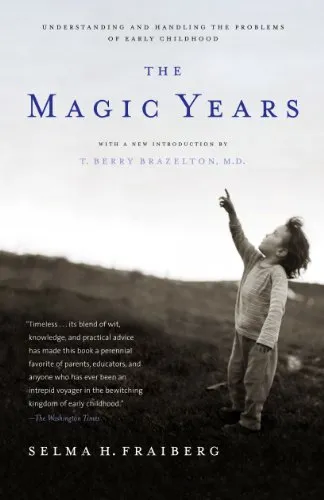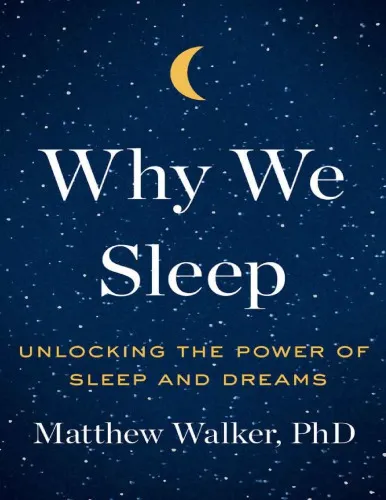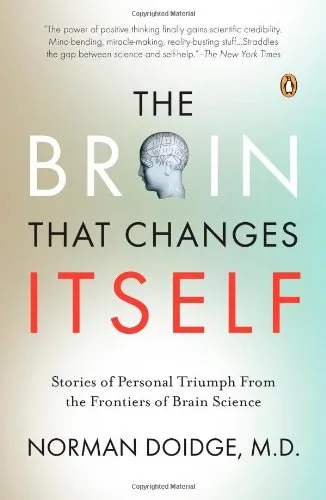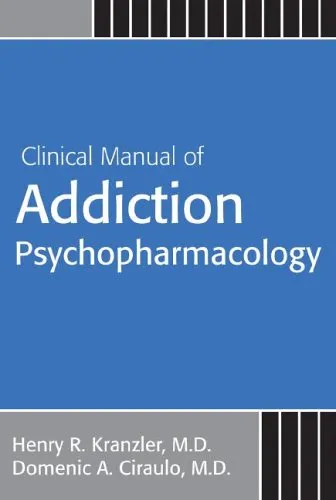Addiction Recovery Management: Theory, Research and Practice
4.5
بر اساس نظر کاربران

شما میتونید سوالاتتون در باره کتاب رو از هوش مصنوعیش بعد از ورود بپرسید
هر دانلود یا پرسش از هوش مصنوعی 2 امتیاز لازم دارد، برای بدست آوردن امتیاز رایگان، به صفحه ی راهنمای امتیازات سر بزنید و یک سری کار ارزشمند انجام بدینکتاب های مرتبط:
مقدمهای بر کتاب "Addiction Recovery Management: Theory, Research and Practice"
کتاب "Addiction Recovery Management: Theory, Research and Practice" یک نقطهی عطف در زمینهی پژوهشها و مدیریت بازیابی اعتیاد محسوب میشود. این کتاب به شکل جامع و علمی به بررسی مفاهیم، نظریهها، و اثربخشی عملیاتی بازیابی اعتیاد میپردازد و توانسته است پلی میان تحقیقاتی نظری و کاربردهای عملی در این حوزه فراهم سازد. نوشتههای ویلیام ال. وایت و جان اف. کلی (بهعنوان نویسندگان)، خوانندگان را به سوی راهکارهای مستحکمتری برای درک و ارائه مراقبتهای پایدارتر در مسیر بازیابی اعتیاد هدایت میکنند.
خلاصهای از کتاب
این کتاب به سه بخش اصلی تقسیم شده است که هر یک به جنبهی خاصی از بازیابی اعتیاد میپردازد. بخش اول بعضی از نظریهها و مفاهیم بنیادین بازیابی، مانند نقش Recovery-Oriented Systems of Care (ROSC) و ماموریتهای چندوجهی آن را بررسی میکند. بخش دوم بر جدیدترین پیشرفتها در پژوهشهای بازیابی تمرکز داشته و روشهایی مدرن را برای پشتیبانی از افرادی که در مسیر بازیابی اعتیاد هستند، معرفی میکند. در نهایت بخش سوم کاربردهای بالینی و عملی را برای سیستمهایی که خدمات بازیابی ارائه میدهند، بررسی میکند و استراتژیهایی برای بهبود مستمر نتیجهها پیشنهاد میکند.
این اثر به طور خاص به مواردی مانند نقش خانواده، جوامع پشتیبان، و عوامل تعیینکنندهای نظیر پایداری و طولانیمدت بودن بازیابی تأکید دارد. علاوه بر این، نقش فناوری در مدیریت بازیابی نیز در بخشهای مختلف این کتاب مورد تحلیل قرار گرفته است.
یادگیریهای کلیدی
- ارتباط میان نظریههای بازیابی افراد و اثربخشی آنها در عمل.
- اهمیت ایجاد و گسترش Recovery Capital در بازیابی بلندمدت.
- نقش حیاتی فرهنگ و اجتماع در تقویت سیستمهای مراقبتی متناسب با بازیابی.
- آشنایی با ابزارهای نوین مانند Peer-Based Recovery و کاربرد آنها در همکاریهای حمایتی.
- تحلیل راههای پیشبرد تحقیقات علمی برای پایهگذاری روشهای مدیریت بازیابی مؤثرتر.
نقلقولهای مشهور از کتاب
"Recovery is not a single event; it is a long-term process of internal change and external adaptation."
"Sustainable recovery involves not only sobriety but also enhanced quality of life and community integration."
"The role of relationships in recovery cannot be overstated. Social connections are the cornerstone of sustainable change."
چرا این کتاب مهم است؟
کتاب "Addiction Recovery Management" به عنوان یک منبع اصیل و ضروری برای تمامی متخصصان، پژوهشگران و حتی افرادی که به دنبال مسیر بازیابی هستند، اهمیت ویژهای دارد. بسیاری از سیستمهای مرسوم درمان اعتیاد به جنبههای کوتاهمدت و مداخلات فوری متمرکز شدهاند، در حالی که این کتاب تنوعی از عوامل بلندمدت را در نظر گرفته و مبتنی بر تغییرات عمیقتری در زندگی فرد معتاد پیش میرود. تمرکز این کتاب بر مفاهیمی همچون پایداری، نقش خانواده و اجتماع، و گوجستن از روشهای سنتی، آن را به یکی از منابع بیبدیل در این حوزه تبدیل کرده است.
علاوه بر این، معرفی ابزارهای علمی و کاربردی مدرن، این کتاب را به منبعی بینظیر برای آموزش ارائهدهندگان خدمات به افراد در حال بازیابی تبدیل کرده است. به طور خاص، اهمیت استفاده از دادهها و تحقیقات علمی به همراه تمرکز بر کیفیت زندگی، این اثر را در زمره مطالعات تأثیرگذار قرار داده است.
Introduction to "Addiction Recovery Management: Theory, Research and Practice"
"Addiction Recovery Management: Theory, Research and Practice" is a comprehensive resource designed for professionals, researchers, and anyone invested in understanding the multifaceted process of addiction recovery. Co-edited by John F. Kelly and William L. White, this book serves as a robust foundational text that explores the complexities of recovery from addiction, expanding beyond traditional approaches to encompass the evolving science, theory, and clinical practices involved in supporting long-term recovery.
Addiction is a chronic condition that poses significant challenges at personal, social, and systemic levels. While much attention in the field of addiction has focused on active treatment interventions, this book shines a critical spotlight on recovery, emphasizing long-term wellness and holistic strategies for sustainable change. Drawing on decades of academic research and clinical insights, the authors piece together a multidisciplinary approach that bridges theory, practical application, and the lived experiences of individuals in recovery.
At its core, the book highlights the recovery management approach, which pivots focus from acute care models to strategies that build resilience and promote enduring recovery outcomes. By integrating evidence-based methods with the practice and principles of peer support, recovery coaching, and community-based programs, this book equips readers with actionable tools to foster meaningful change in the lives of those battling addiction.
Whether you are a clinician seeking guidance, a policymaker designing recovery-oriented systems, or someone affected by addiction eager to understand the journey of recovery, this book offers invaluable insights tailored to all perspectives.
Detailed Summary
The book deftly bridges the science and practice of addiction recovery management by combining research-driven methodologies with real-world applications. It begins with an exploration of the chronic nature of addiction, providing a detailed understanding of why recovery must be viewed as a long-term, dynamic process rather than a one-time goal. The authors place particular emphasis on the Recovery-Oriented Systems of Care (ROSC) approach, which provides a framework for supporting individuals in their recovery journey through an interconnected web of professional treatment, peer-led support, and community-based interventions.
One of the book’s key contributions is its discussion of recovery capital, which refers to the internal and external resources that individuals draw upon during recovery. By offering tools for assessing and enhancing recovery capital, the authors empower care providers to design interventions that address individual recovery needs. Additionally, the book provides insights into emerging recovery support services such as recovery coaching, recovery residences, and technology-enabled support systems.
In later chapters, the book dives deeper into the collective role of peers, family, and community in sustaining recovery. Practical examples of successful recovery interventions are shared, alongside discussions of common challenges and barriers that individuals face during their journey. Moreover, the book highlights policies and systemic changes required to transform addiction treatment into a recovery-focused enterprise. It is a must-read for anyone seeking to create or contribute to recovery-oriented systems that prioritize well-being over pathology.
Key Takeaways
- Recovery is a dynamic, long-term process that extends beyond acute treatment.
- Building recovery capital is essential for sustainable recovery outcomes.
- Community and peer-based support play critical roles in promoting and maintaining recovery.
- Recovery-Oriented Systems of Care (ROSC) provide a vital framework for policy and practice.
- Clinicians and policymakers must prioritize holistic, person-centered approaches to addiction recovery.
- Structural changes in the treatment system are required to fully embrace recovery management principles.
Famous Quotes from the Book
"Recovery is not simply about stopping drug use—it's about creating a new lifestyle built upon hope, resilience, and sustained health."
"The measure of a recovery system’s effectiveness is not in how many people it treats, but in how many lives it transforms for the long term."
"The community must exist not only as a safety net but as a wellspring of support that guides individuals toward hope and renewed purpose."
Why This Book Matters
"Addiction Recovery Management: Theory, Research and Practice" matters because it represents a paradigm shift in the way addiction is understood and treated. For too long, the field of addiction care has focused on acute interventions aimed solely at cessation of drug use. This book asserts that true recovery involves securing a fulfilling and connected life while addressing the multifaceted challenges faced by people in recovery. With its emphasis on recovery capital, peer support systems, and policy advancements, it provides a roadmap for creating more effective, humane, and lasting solutions for individuals and society.
Furthermore, the book aligns with public health objectives by advocating for prevention and early intervention strategies, while also addressing systemic barriers to accessing care. Its interdisciplinary approach ensures that it resonates with a broad audience, fostering collaboration across sectors to address one of the most persistent public health crises of our time. This is not just a book; it is a call to action for all stakeholders in the addiction and recovery ecosystem.
دانلود رایگان مستقیم
شما میتونید سوالاتتون در باره کتاب رو از هوش مصنوعیش بعد از ورود بپرسید
دسترسی به کتابها از طریق پلتفرمهای قانونی و کتابخانههای عمومی نه تنها از حقوق نویسندگان و ناشران حمایت میکند، بلکه به پایداری فرهنگ کتابخوانی نیز کمک میرساند. پیش از دانلود، لحظهای به بررسی این گزینهها فکر کنید.
این کتاب رو در پلتفرم های دیگه ببینید
WorldCat به شما کمک میکنه تا کتاب ها رو در کتابخانه های سراسر دنیا پیدا کنید
امتیازها، نظرات تخصصی و صحبت ها درباره کتاب را در Goodreads ببینید
کتابهای کمیاب یا دست دوم را در AbeBooks پیدا کنید و بخرید
1545
بازدید4.5
امتیاز0
نظر98%
رضایتنظرات:
4.5
بر اساس 0 نظر کاربران
Questions & Answers
Ask questions about this book or help others by answering
No questions yet. Be the first to ask!


